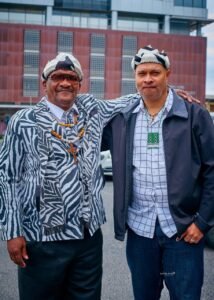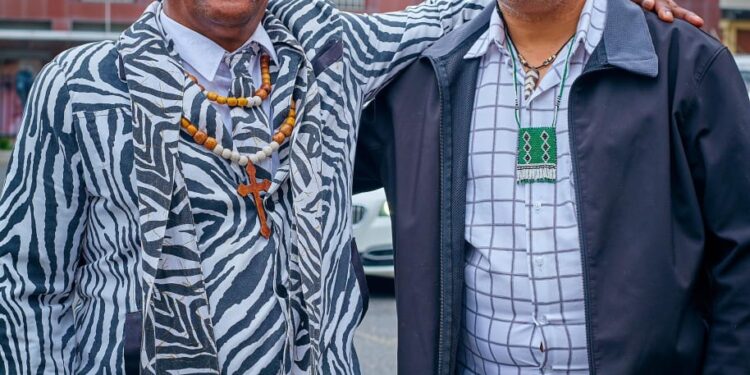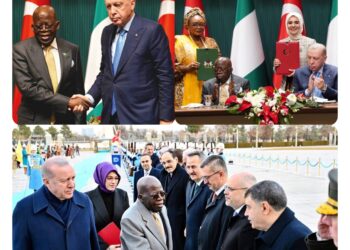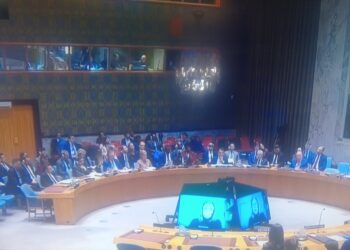
King Henry Goukou Solomons 11 and Prince Talito Solomons Hessequa Royal Kingdom
Photo credit: Lawal Abdullahi
South Africa, November 19, 2024 – In an exclusive interview with In The Know, Prince Talito Solomons, the heir to King Henry Goukou Solomons II of the Hessequa Royal Kingdom, highlighted the ongoing struggles faced by the Khoisan community in South Africa. Speaking with candor, Prince Solomons shed light on the historical and contemporary challenges that have left the Khoisan, South Africa’s first indigenous people, marginalized in their ancestral land.
“The long-standing divisions within the Hacumqua-Inqua Royal House are deeply rooted in our fight for the recognition of our culture, land, and heritage,” Prince Solomons explained. He emphasized that the impact of colonialism and apartheid policies has not only eroded the unity of the Khoisan people but also undermined their cultural identity. “We are not just fighting for ourselves; we are fighting for the dignity of an entire people—the first people of this land,” he stated.
Reclaiming Identity and Culture
The Hessequa Royal Kingdom is part of a broader initiative to restore and promote Khoisan heritage. Central to these efforts is the revival of historical tribes such as the Hancumqua, a mission led by King Henry Goukou Solomons II and Prince Talito Solomons. Key to their vision is ensuring the survival of Khoisan languages, many of which are endangered. “Our languages are more than words; they are our history, identity, and the essence of our spiritual connection to the land,” Prince Solomons remarked.
These revival efforts come at a time when Indigenous movements globally are gaining momentum, calling for equitable treatment, cultural preservation, and political inclusion. For the Khoisan, the fight extends beyond cultural revival to demand formal government recognition of their leaders as traditional authorities.
Challenges and Criticism
Despite the progress made, the journey has faced its fair share of skepticism. Critics argue that efforts to revive tribal leadership often blur the lines between historical accuracy and contemporary reconstruction. However, supporters see these movements as essential for healing the deep scars of centuries of dispossession and cultural erasure.
The Hessequa Royal Kingdom’s mission also intersects with South Africa’s ongoing debates about land rights and indigenous leadership. Prince Solomons underscored the urgency of this issue, saying, “We are not asking for special treatment but for a restoration of what is rightfully ours as the original custodians of this land.”
The Road Ahead
The South African government has yet to formally recognize the Khoisan as traditional leaders. However, movements like the Hessequa Royal Kingdom are steadily gaining traction. Achieving formal recognition, according to Prince Solomons, would mark a significant milestone in restoring the dignity of the Khoisan people and securing their role in South Africa’s future.
As the world increasingly prioritizes indigenous rights, the Hessequa Royal Kingdom exemplifies resilience and determination. Their mission serves as a powerful reminder that true reconciliation requires addressing the long-standing injustices faced by Indigenous communities.
















